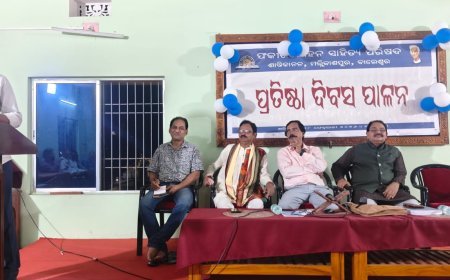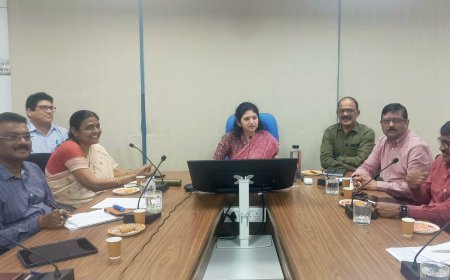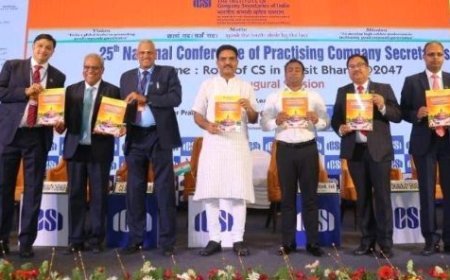Dr. B.R. Ambedkar: The Underrated Visionary of India’s Soul and Constitution

In the long and luminous list of India’s freedom fighters and nation-builders, few names command the kind of intellectual reverence that Dr. Bhimrao Ramji Ambedkar does. Yet, his towering contributions have often been overshadowed by more politically celebrated figures. While he is rightly recognized as the principal architect of the Indian Constitution, Dr. Ambedkar was far more than just a legal luminary. He was a philosopher, economist, educationist, social reformer, and above all, a relentless crusader for human dignity and social justice.
A Beacon of Resistance in the Pre-Independence Era
Born into the oppressed Mahar caste in 1891, Ambedkar experienced the brutality of the caste system firsthand. Unlike many of his contemporaries, who came from relatively privileged backgrounds, Ambedkar's rise was forged in the crucible of social exclusion. His journey from the dusty classrooms of Satara to Columbia University and the London School of Economics was a testament to his unwavering determination to educate and empower himself—and eventually, millions of others.
Ambedkar’s activism began well before Independence. He was a strong voice for the "Depressed Classes" (now referred to as Dalits) and challenged the orthodoxy of caste-based discrimination. His debates with Mahatma Gandhi on separate electorates for Dalits, though controversial, underscore his radical commitment to political autonomy for the marginalized. Unlike many other leaders, Ambedkar did not seek charity for the downtrodden—he demanded justice.
Post-Independence Architect of Modern India
After India gained freedom in 1947, Ambedkar was appointed as the Chairman of the Drafting Committee of the Constitution. His vision of India was not just democratic in form but deeply egalitarian in spirit. He ensured that the Constitution provided universal adult franchise, fundamental rights, and legal protections against caste discrimination.
He introduced the Hindu Code Bill to reform personal laws and ensure gender justice, though it was opposed by many. Disillusioned by the lack of real social reform, Ambedkar eventually embraced Buddhism in 1956 along with millions of his followers—marking one of the largest religious conversions in modern history as a protest against caste oppression.
Why Dr. Ambedkar Still Matters Today
In an era where identity politics, social inequality, and constitutional debates dominate headlines, Ambedkar's legacy is more relevant than ever. Here’s how:
- Social Justice: Ambedkar’s emphasis on annihilating caste remains unfinished. Caste discrimination still permeates education, employment, and society. His ideas remind us that real progress is not economic alone—it is social and moral.
- Constitutional Morality: At a time when democratic institutions face stress and polarization, Ambedkar’s warnings about the misuse of power and erosion of constitutional values serve as prophetic counsel.
- Economic Inclusiveness: As an economist, he envisioned state-led welfare, inclusive growth, and land reforms. His insights can still guide us in addressing rural poverty, unemployment, and inequality.
- Education as Empowerment: Ambedkar was a staunch believer in education as the foundation of liberation. In a world driven by knowledge economies, his mantra—“Educate, Agitate, Organize”—is the call of the hour.
Conclusion
Dr. B.R. Ambedkar was not just a leader of the Dalits; he was a leader for all Indians who believe in equality, liberty, and fraternity. His life is a blueprint for resistance against injustice and for building an inclusive nation. As India navigates the complex challenges of the 21st century, remembering Ambedkar is not a ritual—it is a responsibility.Dr. B.R. Ambedkar: The Underrated Visionary of India’s Soul and Constitution
In the long and luminous list of India’s freedom fighters and nation-builders, few names command the kind of intellectual reverence that Dr. Bhimrao Ramji Ambedkar does. Yet, his towering contributions have often been overshadowed by more politically celebrated figures. While he is rightly recognized as the principal architect of the Indian Constitution, Dr. Ambedkar was far more than just a legal luminary. He was a philosopher, economist, educationist, social reformer, and above all, a relentless crusader for human dignity and social justice.
A Beacon of Resistance in the Pre-Independence Era
Born into the oppressed Mahar caste in 1891, Ambedkar experienced the brutality of the caste system firsthand. Unlike many of his contemporaries, who came from relatively privileged backgrounds, Ambedkar's rise was forged in the crucible of social exclusion. His journey from the dusty classrooms of Satara to Columbia University and the London School of Economics was a testament to his unwavering determination to educate and empower himself—and eventually, millions of others.
Ambedkar’s activism began well before Independence. He was a strong voice for the "Depressed Classes" (now referred to as Dalits) and challenged the orthodoxy of caste-based discrimination. His debates with Mahatma Gandhi on separate electorates for Dalits, though controversial, underscore his radical commitment to political autonomy for the marginalized. Unlike many other leaders, Ambedkar did not seek charity for the downtrodden—he demanded justice.
Post-Independence Architect of Modern India
After India gained freedom in 1947, Ambedkar was appointed as the Chairman of the Drafting Committee of the Constitution. His vision of India was not just democratic in form but deeply egalitarian in spirit. He ensured that the Constitution provided universal adult franchise, fundamental rights, and legal protections against caste discrimination.
He introduced the Hindu Code Bill to reform personal laws and ensure gender justice, though it was opposed by many. Disillusioned by the lack of real social reform, Ambedkar eventually embraced Buddhism in 1956 along with millions of his followers—marking one of the largest religious conversions in modern history as a protest against caste oppression.
Why Dr. Ambedkar Still Matters Today
In an era where identity politics, social inequality, and constitutional debates dominate headlines, Ambedkar's legacy is more relevant than ever. Here’s how:
- Social Justice: Ambedkar’s emphasis on annihilating caste remains unfinished. Caste discrimination still permeates education, employment, and society. His ideas remind us that real progress is not economic alone—it is social and moral.
- Constitutional Morality: At a time when democratic institutions face stress and polarization, Ambedkar’s warnings about the misuse of power and erosion of constitutional values serve as prophetic counsel.
- Economic Inclusiveness: As an economist, he envisioned state-led welfare, inclusive growth, and land reforms. His insights can still guide us in addressing rural poverty, unemployment, and inequality.
- Education as Empowerment: Ambedkar was a staunch believer in education as the foundation of liberation. In a world driven by knowledge economies, his mantra—“Educate, Agitate, Organize”—is the call of the hour.
Conclusion
Dr. B.R. Ambedkar was not just a leader of the Dalits; he was a leader for all Indians who believe in equality, liberty, and fraternity. His life is a blueprint for resistance against injustice and for building an inclusive nation. As India navigates the complex challenges of the 21st century, remembering Ambedkar is not a ritual—it is a responsibility.
Sanjay Pattnayak
Sundargarh












































